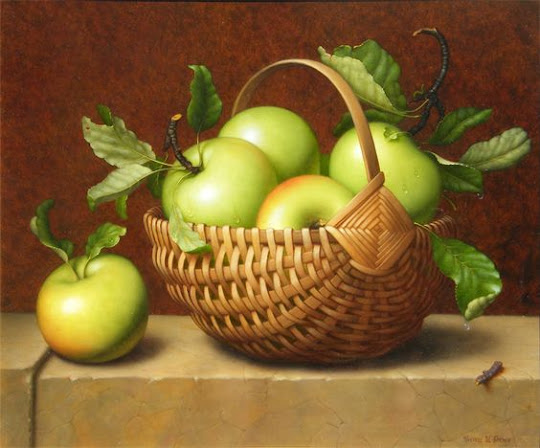Sri Narada Bhakthisuthram – Pradhamodhyaya: || 56 - 70
Chapter – 5 – Sri Narada Bhakthisuthram
There are three categories of people in
the Gaunabhakthi/Aparabhakthi, they are Arththi, Arththarthi, and
Jijjyasu. The superior among the
Bhakti is Parabhakthi/ Gnani, the
Swathika Bhakti is superior to Thamasika Bhakti and Rajasika Bhakti. Gnana, Karma, and Yoga are the means to
achieve that Paramapremawaroopa Bhakti. These Gnana, Karma, and Yoga require specific
qualifications and skills, but to achieve Paramapremaswaroopa Bhakti no
specific skill or qualifications are required all that needed is the grace of
the supreme Lord. Hence, Bhakthimarga is considered as the easiest way to
achieve that supreme Bhramam resides as a soul in living beings. The Bhakthimarga
is the easiest tool to practice, and achieve that all-pervasive supreme Bhramam,
the devotee who has experienced the Paramapremaswaroopa Bhakti recommends the practice of Bhakti is easier than any other methods of Gnana, Karma, Yoga
Marga. The Paramapremaswaroopa Bhakti
is serene, and bliss, is easier to achieve, instead of Gnana, Karma, Yoga. The Jeeva who constantly engages in the
practice of Gnana, Karma, and Yoga achieves that Paramapremaswaroopa Bhakti
which is absolute bliss after several efforts. The Paramapremaswaroopa Bhakti
is the essence of serenity and bliss, it is effortless to practice, hence the
Jeeva who practices Bhakti experiences that serenity and bliss at the beginning
itself, without much effort. The Jeeva
who has surrendered all the Laukika and Vaidhika Karma at the lotus feet of
that supreme Lord, do not feel distressed or disappointed at the time of
crisis. The Parabhaktha who has completely surrendered to that Supreme Lord,
constantly engages in the contemplation of that supreme Lord, do not get
conscious of Laukikakarma, hence the supreme Lord will take care of their Yoga
and Kshema. Parabhakthi is the supreme tool to achieve that Paramapremaswaroopa Bhakti, as long as the Jeeva strive
for it, does not give up the performance of Laukikakarma, they do not expect the
fruit of that Laukikakarma, and follow all those Sadhana to enhance the
Bhakti. The Parabhaktha and Sadhaka abandon Sthree, Dhanam, Nasthika, and
enemies, these are easy to distract the Sadhaka from the path of righteousness
and achievement of Bakthi, it persuades the Sadhaka to get attracted to it, eventually, it would impure the mind
and intellect of the Sadhaka. The thought
of Sthree would hurl the Jeeva to lust and desire, wealth induces the Lobha,
the association with the Nasthika would promote ignorance and the thought of enemies
would accumulate hatred, these are easier to create Vikshobha/turbulence in the
mind of Sadhaka, hence the Sadhaka should keep away from Sthree, Dhanam, Nasthika
and enemies, and these are a huge hindrance to the growth of Paramapremaswaroopa
Bhakti. In the same manner Abhimana/’I’ consciousness/me, myself and mine,
Dhambham/pride, arrogance, haughtiness should be abandoned by a Sadhaka. The practice of all the Adhyathmika and Vyavaharika
Karma performed are surrendered to that Supreme Lord, eventually if any Kama,
Krodha, and Lobha, Moha, left in the Sadhaka would get diverted to that supreme
Lord. All the Shubha and Ashubha Karma is surrendered to that Supreme Lord,
would enhance the Chiththashudhdhi/purity of intellect, that would transform to
Parabhakthi, like the Pingala who was engaged in the prostitution, the moment
she devoted her mind to that supreme Lord got relieved from all the impurities
and attained that supreme Lord.
Gauni Thridha Gunabedhadh
Arthadhibhedhadh Va ||
Uththarasmadhuththarasmath
Poorvapoorva Shreyaya Bhavathi ||
Anyasmath Saulabham Bhakthau ||
Pramanatharasyanapekshathvath Swayam Pramanathvath ||
Shanthiroopath Paramanandharoopashcha ||
Lokahanau Chintha Na Karya Nivedhithathma Lokavedathvath ||
Na
Thadhasidhdhau Lokavyavaharo Heya: Kinthu Phalathyaga: Thath Sadhanam
Cha Karyameva ||
Sthreedhana Nasthika Vairi Charithram Na
Shravaneeyam ||
Abhimana Dhambhadhikam Thyajyam ||
Thadharpitha Akhilachara: San Kama Krodha Abhimanadhikam Thasminneva Karaneeyam
||
Thri Roopabhangapoorvakam Nithyadhasya Nithyakantha Bhajanathmakam
Prema Karyam Premaiva Karyam ||
Bhaktha Yekanthino Mukhya:
||
Kandavarodha Romanchashrubhi: Parasparam Lapamana: Pavayanthi Kulani Prithvim Cha ||
Theerthi Kurvanthi Theerthani Sukarmi Kurvanthi Karmani Saccha
Sthri Kurvanthi Shasthrani ||
Thanmaya: ||
